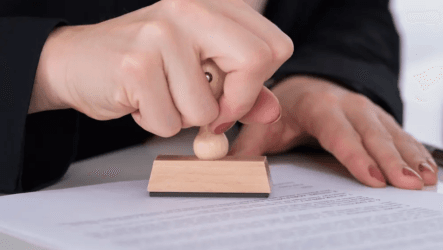It’s a common question for people who value their privacy: is your divorce going to be public record in Houston, TX? The short answer is “sort of, yes,” but there are some strategies to minimize how much of your personal information can be accessed by others. The best way to do that is to talk with a divorce lawyer as soon as possible.
If I Get a Divorce in Texas, Is It Public Record?
The first step is to distinguish what type of divorce record you are talking about. The divorce certificate is the most public record but also contains only the very most basic information about the divorce. Basically, it’s just your name, when you got divorced, and where it happened. This piece of information is very important as a public record because it must be accessed if either party wishes to remarry. It will also prove your status if there are any tax questions. It’s quite easy to get a hold of this record, and it is in the public interest, as well as the interests of the two parties, that it be so.
A divorce decree is a different record. This one has all the information that either you and your spouse agreed upon in the divorce or which the court ordered upon you. This decree will have a lot of details; for example, the precise amounts of child support that one party may be paying and the other receiving. It will also have all the details about visitation, asset disposal, etc. For the most part, only you, your ex, and your respective lawyers may access this document.
Finally, there is the divorce record, and this contains everything that was filed for your case. These records are considered public information and can be accessed, but it does require finding the specific distrcit clerk’s office for the county where the document exists and paying a fee to access it.
Keeping Things Private: Get Help From a Houston, TX Divorce Lawyer
There are some things you can do to keep your information less accessible. There are layers of privacy available, and you will definitely need the help of an experienced family law attorney if you hope to really keep things private.
Step One: Restricting
The first step and the most simple privacy layer is to restrict the documents for your divorce. Your lawyer will specially designate this at the top of each pleading that you file, marking it as containing sensitive data and asking that it be restricted. The data that you might want to restrict in this way would include things like your birth dates, addresses, and driver’s license or other identifying numbers.
By restricting this information, you do not actually keep the documents themselves from being public information, but the information that is restricted cannot be posted on the court’s website. Only the most basic information necessary to identify one person from another, such as the last three digits of a Social Security number or bank number, will be retained on the documents.
Step Two: Sealing – General Information
The assumption in Texas is that court records need to remain open to the public. This is not actually out of a desire to violate privacy but out of a desire to force the courts to do everything in an open and transparent manner.
The History of Court Records
It’s important to understand some of the history behind all this to understand why records are so often public at a time when our modern world worries so much about privacy. Prior to the founding of the United States, it was par for the course for totalitarian governments and monarchs to use courts as weapons against their own people.
Citizens could be arrested and simply disappear: and they often were. Judges could order whatever they wanted, and in some cases no one could even find out what had been ordered. It is still this way in some parts of the world. Both United States and Texas law were founded on the idea that the government works for the people, and thus everything the authorities do needs to be accessible to the public so authorities can be held accountable and restrained if necessary.
A Compelling Reason
Understanding this history, it makes more sense that you generally need a compelling reason to seal a court file. With normal law proceedings, you have to prove to the court that there is a compelling reason that this should be done. A lawyer would use evidence and persuasive arguments to demonstrate that there is a serious and specific reason why you need to seal your documents, and why this need outweighs the public interest to keep court documents open.
Once it is sealed, no one (for the most part) can access it unless it is unsealed, which is a legal process that involves filing a motion, holding a hearing, and then the court determining whether the file in question should be unsealed.
Family Law Exceptions
Records that are filed in a certain way under the Family Code of Texas are not always held to the same requirements for sealing. In the family law courts, the judges have a lot more leeway to decide whether it’s important to protect a family’s privacy, and they are more likely to do so in these situations than others. However, it is never a foregone conclusion that a judge will be happy to seal your records, so be sure to talk with your lawyer about the feasibility of getting this done.
The Agreement Incident to Divorce
Another option for keeping things more private is to use an Agreement Incident to Divorce, or AID. In a regular divorce situation, you would list out all the assets and debts that you have in your divorce decree, which would then be public record. With an AID, you and your soon-to-be ex list out assets and debts on a separate form that is not filed with the court; instead, the judge will just review it at the end of the divorce proceedings and either sign off on it or not.
If it has been drafted properly by a qualified lawyer, your AID is usually going to be accepted. You and your spouse will each get a copy, and that’s it. This keeps a lot of your financial information private.
A Caveat
The trick here is that you and your spouse must agree to use the AID. That means you will have to hammer it out in compromise to come up with an agreement for distributing every asset and dealing with every debt. To complicate matters, the court must find the division fair and the document must be presented to the court in the right way.
It’s never a good idea to attempt an AID without the help of a family law attorney. If your spouse is currently unwilling to compromise, it may be difficult to go this route, but sometimes having your attorneys talk to each other instead of talking directly can help you get past the hard feelings and come up with a compromise that can keep both of you happy and your information safe.
If you are considering divorce or even in the midst of one and want to keep your information private, you need the help of a lawyer. Contact Skillern Firm Divorce and Child Custody Lawyers now in Houston and Sugar Land, TX for experienced help.






.2507151355550.png)

